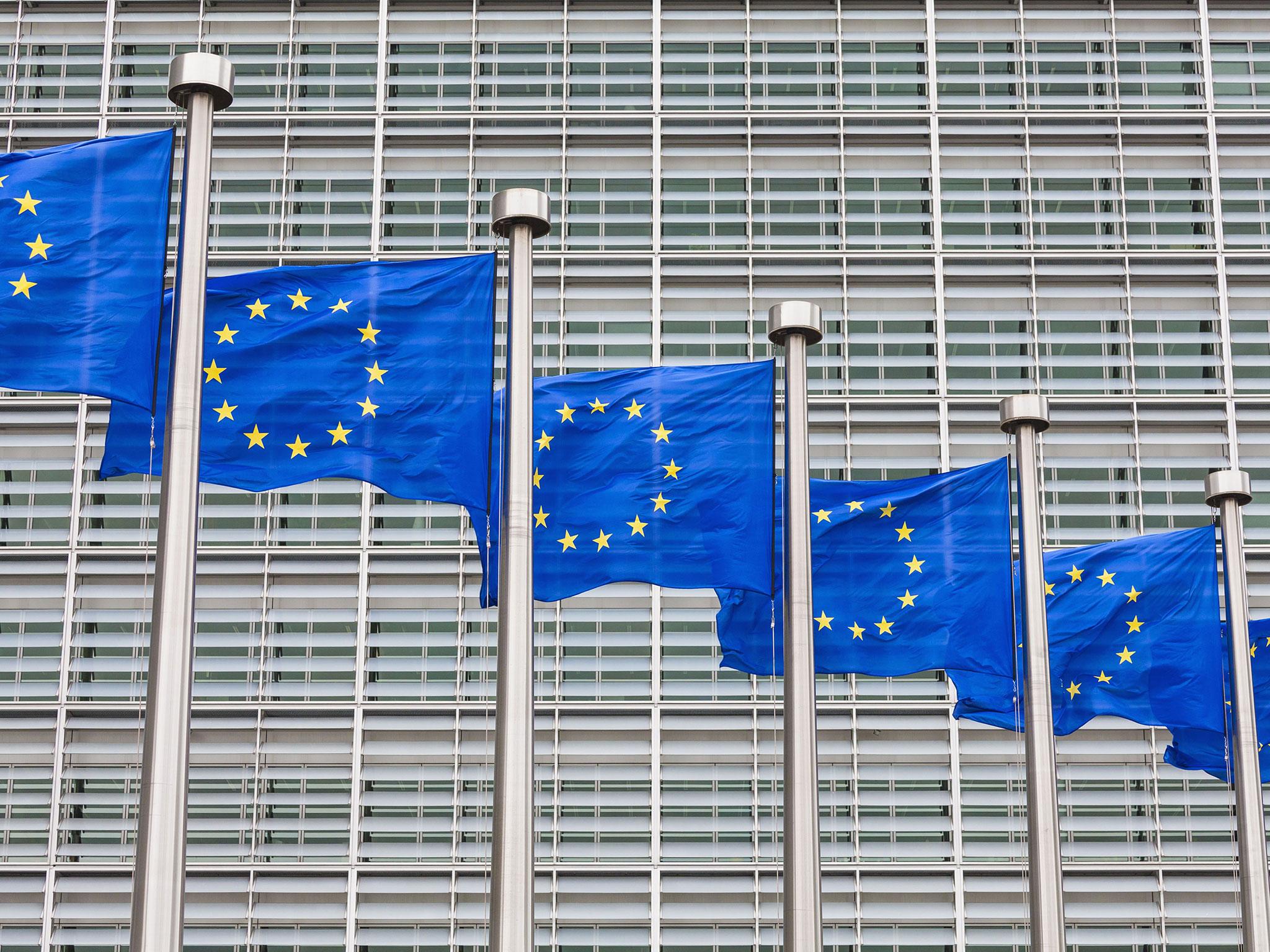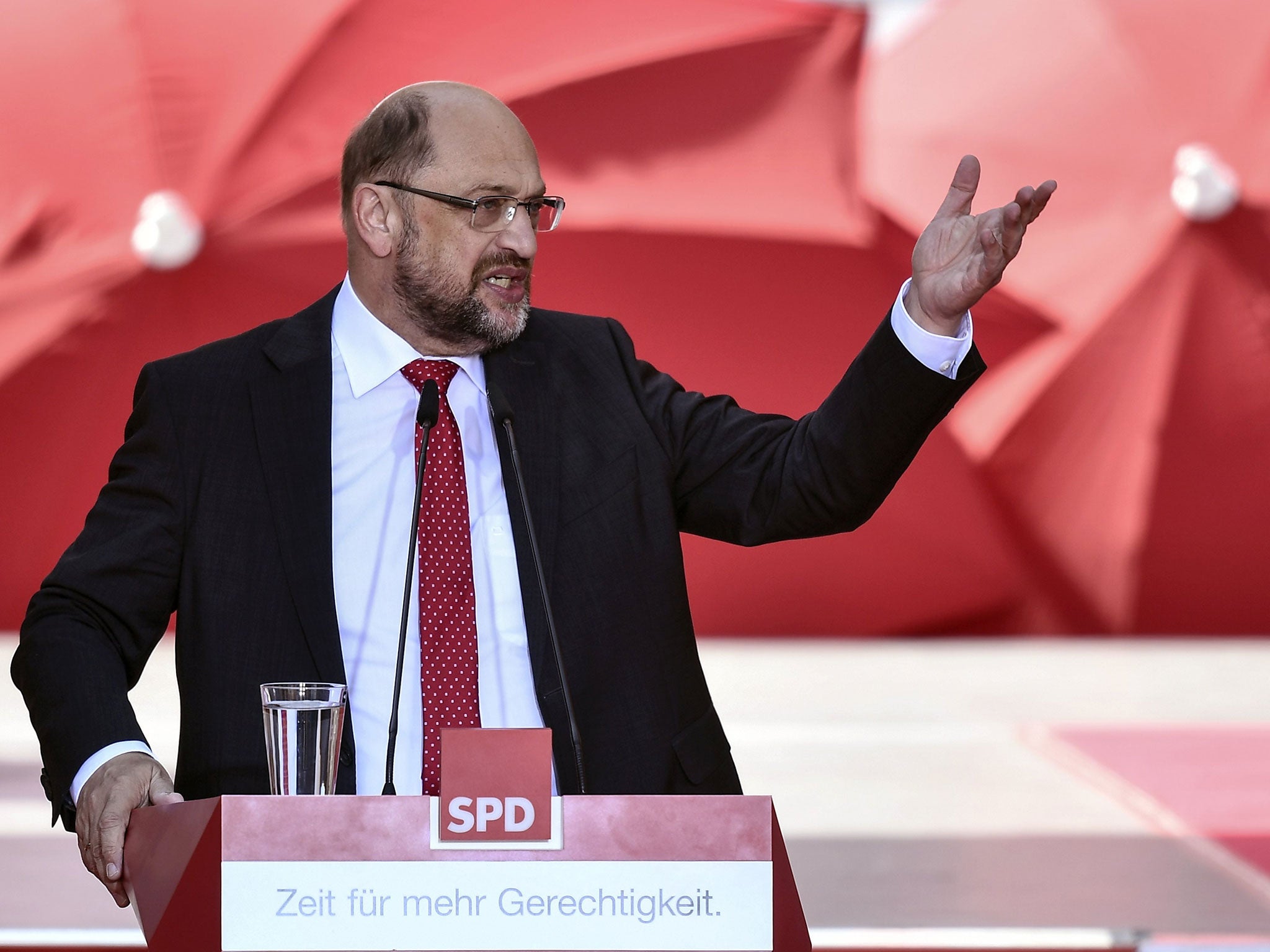EU must become a United States of Europe by 2025, says Angela Merkel's planned coalition partner Martin Schulz
Social democrat leader says countries that do not adopt new treaty should be kicked out of EU

Your support helps us to tell the story
From reproductive rights to climate change to Big Tech, The Independent is on the ground when the story is developing. Whether it's investigating the financials of Elon Musk's pro-Trump PAC or producing our latest documentary, 'The A Word', which shines a light on the American women fighting for reproductive rights, we know how important it is to parse out the facts from the messaging.
At such a critical moment in US history, we need reporters on the ground. Your donation allows us to keep sending journalists to speak to both sides of the story.
The Independent is trusted by Americans across the entire political spectrum. And unlike many other quality news outlets, we choose not to lock Americans out of our reporting and analysis with paywalls. We believe quality journalism should be available to everyone, paid for by those who can afford it.
Your support makes all the difference.The leader of Germany’s main centre-left party has said he wants to establish a United States of Europe by 2025.
Martin Schulz, a former European Parliament president, said a convention should be set up to create a new constitution for Europe and that any country that did not adopt it should automatically be kicked out of the EU.
His comments come as he seeks permission of his SPD party to enter coalition talks with Angela Merkel, who has been unable to form a government without his support following elections in September.
“I want a new constitutional treaty to establish the United States of Europe. A Europe that is no threat to its member states, but a beneficial addition,” he said.
“A convention shall draft this treaty in close cooperation with the civil society and the people. Its results will then be submitted to all member states. Any state that won’t ratify this treaty will automatically leave the EU.”
Mr Schulz was speaking at the SPD’s convention in Berlin, where delegates will vote on whether to start coalition talks.
The party leader, who took the SPD to its worst performance at a German election in its recent history, had previously ruled out doing a deal with Ms Merkel and said the party needed to return to opposition to rejuvenate.
But months of talks between Ms Merkel’s CDU, the liberal FDP, and the Greens collapsed after the FDP pulled out of talks. If the SPD does not join a coalition then the most likely outcome will be new elections.

Mr Schulz also used the speech to take a swipe at Ms Merkel’s former austerity-loving finance minister, adding that “The EU cannot afford another four years of German policy towards Europe à la Wolfgang Schäuble”.
The plan for a United States of Europe outlined by Mr Schulz included the creation of a eurozone finance minister to coordinate spending across the bloc, as well as a European-wide framework for setting minimum wages to stop the undercutting of salaries.
Addressing the SPD’s poor election result, Mr Schulz said his party “didn’t manage to answer the question what social democracy stands for in the 21st century”. He said many voters saw the SPD as “part of the establishment”. The party was previously part of a grand coalition with the CDU.
The SPD won 20.5 per cent in the 2017 elections, down from 25.7 per cent four years earlier. It trailed in second place behind Ms Merkel’s CDU/CSU, which won a combined 33 per cent of the vote.
If the SPD enters government with the CDU it will leave the far-right AfD party, which won 12.6 per cent of the vote, as the largest opposition pary. The FDP won 10.7 per cent, the Left party 9.2 per cent, and the Greens 8.9 per cent.
Join our commenting forum
Join thought-provoking conversations, follow other Independent readers and see their replies
Comments